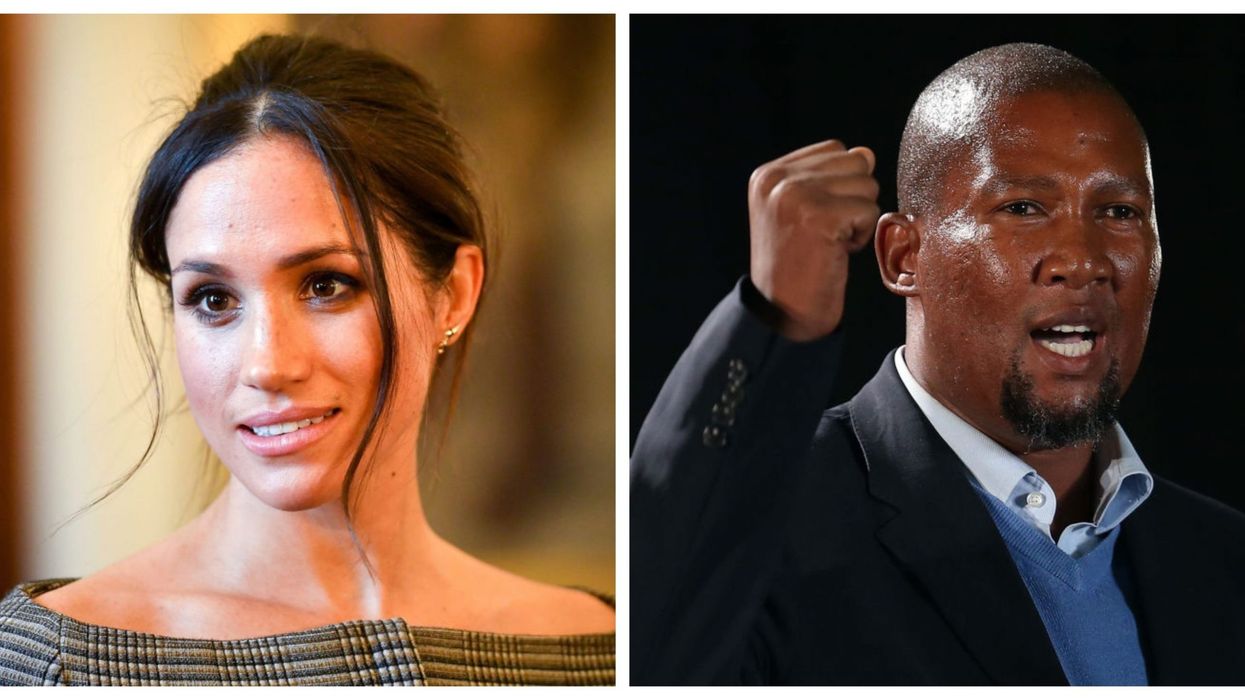In a recent interview, the Duchess of Sussex has claimed that the people in South Africa had 'rejoiced in the streets' after her marriage to Prince Harry in 2018.
Meghan Markle even compared her wedding celebrations in the African nation to the historic release of the anti-apartheid campaigner from jail.
However, Nelson Mandela’s grandson Zwelivelile 'Mandla' Mandela has been surprised by the claim, media reports said.
Mandela, an MP, said the 1990 release of his grandfather from prison after 27 years was 'based on overcoming 350 years of colonialism with 60 years of a brutal apartheid regime in South Africa'.
According to him, Meghan marrying a white prince doesn’t compare to overcoming apartheid.
“So it cannot be equated to as the same. It can never be compared to the celebration of someone's wedding," he said.
During an interview with US magazine The Cut, Markle had claimed a South African actor had told her people had rejoiced on the streets at the time of her wedding, just as they had when Mandela walked free.
The Duchess attended the 2019 premiere of the live-action version of the Lion King, walking the yellow carpet with the Duke.
“I just had Archie. It was such a cruel chapter,” she said. “I was scared to go out.”
But, her claim attracted widespread ridicule in the press and on social media.
Zwelivelile Mandela, a member of the South African National Assembly and the tribal chief of the Mvezo Traditional Council, asked the public to think deeper about the world of the anti-apartheid leader.
“Every day there are people who want to be Nelson Mandela, either comparing themselves with him or wanting to emulate him,” he told MailOnline.
“But before people can regard themselves as Nelson Mandelas, they should be looking into the work that he did and be able to be champions and advocates of the work that he himself championed."
“We are still bearing scars of the past. But they [the celebrations] were a product of the majority of our people being brought out onto the streets to exercise the right of voting for the first time," he was quoted as saying by MailOnline.
"He spoke for oppressed minorities, children and women and protracting the most vulnerable people in our society.”
Prince Harry and Markle visited South Africa on one of their official overseas tours between their 2018. In 2019, the visit was billed as “their first official tour as a family”, with a four-month-old Archie Mountbatten-Windsor travelling with them.
Earlier this year, the Duke of Sussex delivered a speech to the UN General Assembly in New York in honour of Nelson Mandela International Day.
"Mandela had endured the very worst of humanity – vicious racism and state-sponsored brutality. A man who had lost 27 years with his children and family that he would never get back," he said.
Mandela, the leader of the movement to end apartheid in South Africa, was released from prison after 27 years on 11 February 1990.
His freedom was celebrated widely throughout the country, with more than 100,000 people gathering outside Cape Town’s City Hall on the day of his release in anticipation for his first speech there.





